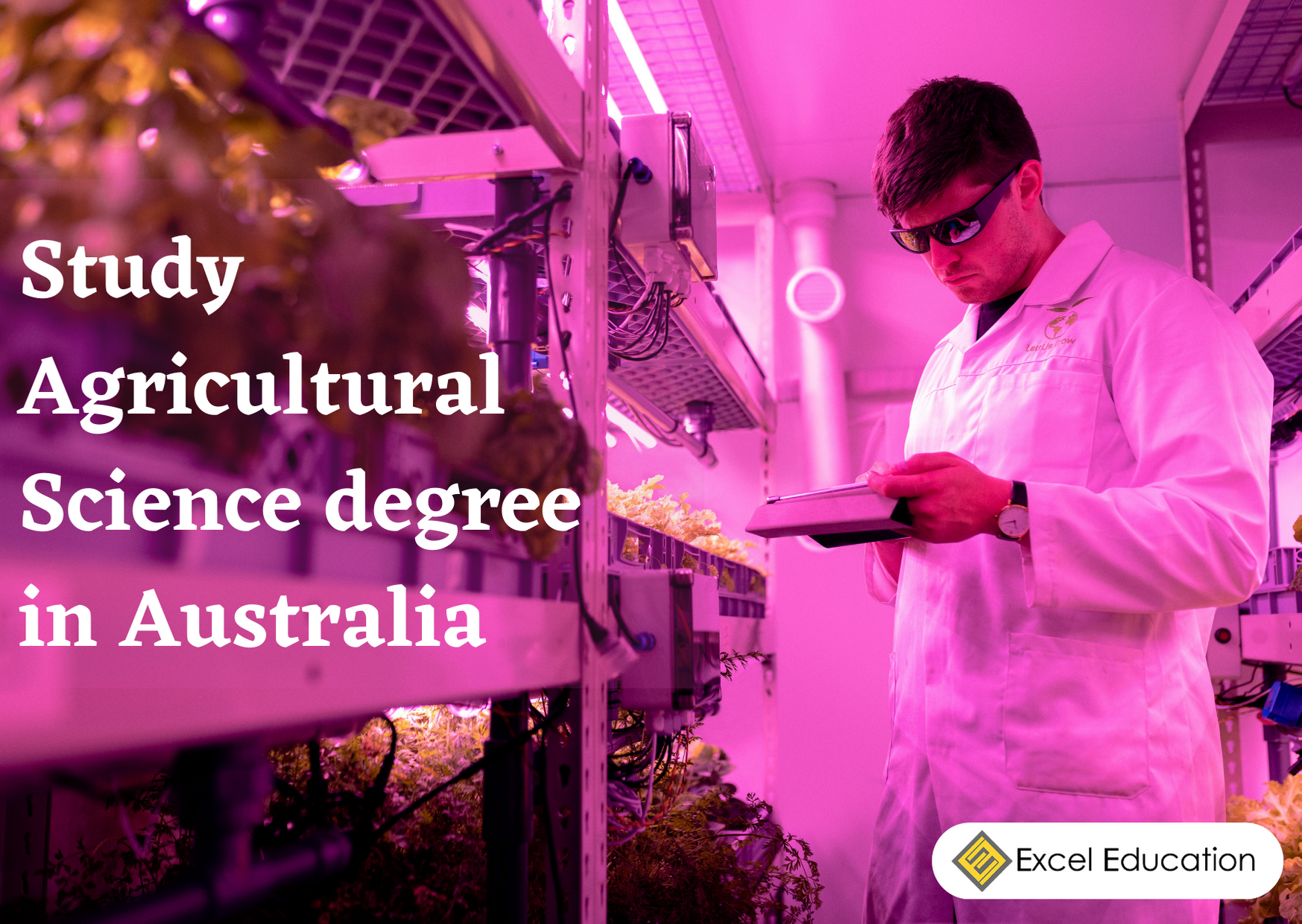
Agriculture has been associated with the beginning of civilisation and still remains as important in sustaining human life. The very beginning of agriculture started with sticks and stones as the tools used for farming activities. Today, the agriculture sector has advanced in technology, ranging from seed drilling to fertilising crops by drone, making it convenient for farmers to maximize the production of agriculture.
Agriculture is an important industry for its contribution to the sustainability and development of countries’ economies, by offering job opportunities such as the processing, distribution, and marketing of crops and livestock products. Thus, it is important for more students to be interested to engage and explore the agricultural industry as the generations to come are vital in the future development of this industry.
This article will cover the importance and the studies of agriculture and the career opportunities available for students who graduate with a degree in agricultural science.
What is Agriculture?
Video Credit: Don’t Memorise
Agriculture is the process of cultivating soil, growing crops and raising domesticated animals (livestock). It involves the processing of plant and animal products and the distribution of these end products for human use and consumption.
Food production is the main goal of agricultural activities. It requires the rearing of livestock, plants and other living things for food, fibre, biofuels and dairy products to maintain the nutrition needs and the overall well being of human life.
Cotton, leather and wool are also part of agricultural products, as well as wood for building and paper goods.
Types of Agriculture
There are two main types of agriculture, which are industrialized agriculture and subsistence agriculture. Both may vary in terms of the size of the production and agricultural methods.
Industrialized Agriculture
Industrialized Agriculture is a type of agriculture where crops and livestock are produced in large numbers to maximize profit. Industrialized agriculture replaces animals and manpower with large machines to produce large quantities of food in a short time. Chemical fertilizers and pesticides are utilized often to increase yield and plant size as well as avoid crops to be harmed or consumed.
Subsistence Agriculture
Subsistence agriculture is small-scale farming, mainly producing crops for consumption by the farmer and their family. If there is a surplus of food, it might be sold locally or within families or relatives. Subsistence agriculture is very labour-intensive because they depend on animals and hand tools to work on the land. Instead of chemical fertilizers, farmers raise chicken, goat and cows to use their manure as fertilizers for plants.
Importance of Agriculture
Agriculture is the main source of food supply for humans and other relevant industries. As the world population increases on a yearly basis, the demand for food is also on the rise, therefore the land needed to cultivate food products also increases. A stable agricultural industry ensures the food security of a country. Food security has always been at the top priority of any country. Countries which struggle to secure the supply chain of food distribution to meet the demand of its people will also struggle to make progress in developing its countries’ economies. These often result in starvation or famine as we could still see in under-developing countries.
The agriculture sector has a great impact on a country’s economy, as it plays a major role in creating employment opportunities, especially in developing countries. For example, farm owners require lots of man-powers in cultivating plants and raising livestock. Moreover, other sectors would also be involved with the agriculture industry to process raw crops or animal products, packaging the products and to advertise and market them to the end-users for consumption. Thus, a progressive agriculture industry will have a great benefit to boost a country’s employment. It is not surprising that the agriculture sector has become an essential factor for developing and also sustaining a country’s economy.
What is an Agricultural Science Degree?
Agricultural science covers a broad interdisciplinary field of biological sciences focused on natural, economic and social science practised in agriculture. The degree course provides students with a wider picture of agriculture, including the study of agricultural technology, principles of management and research methodology. Other scientific subjects also include the biological study of agriculture and the conservation of ecosystems.
A BSc or undergraduate degree in agriculture would be a three or four-year course, including industrial placements for students to apply the knowledge gained in the degree in real-life practical settings. Universities offer the course with different specializations for students to tailor their studies in areas that interest them the most such as agronomy, animal science, horticulture, natural science, plant and soil science, etc.
Career Opportunities with an Agriculture Degree
Agricultural science graduates may secure jobs in different areas in this industry, including marketing, finance, and government service. Examples of career titles agricultural science graduate could acquire include:
Farm Manager
A farm manager oversees farm activities such as animal production and crop production. Farm managers are responsible for monitoring yield quality, maintaining farm building and handling other administrative tasks.
Agricultural Consultant
Agricultural consultants give technical, financial and other commercial advice to agricultural and farming businesses such as conservation organizations, public bodies and other agricultural-based manufacturing companies.
Plant Breeder/Geneticist
Plant geneticists conduct research to study and improve or create new varieties of plants or crops. They usually work in improving characteristics such as size, shape and resistance to disease and drought period.
Soil Scientist
The role of soil scientist is to gather and evaluate information about the characteristics of soil, different types of soil and the ability to sustain in various weather conditions. They also conduct research on how the soils sustain food production, support plant and animal life and impact on the environment.
General Entry Requirement for Agricultural Science Degree in Australia
|
STPM |
Minimum GPA of 2.7 (including a pass in English & Mathematics) |
|
A-Levels |
A minimum score of CDD |
|
UEC |
An average grade of B4 (including a pass in English & Mathematics) |
|
ATAR |
A minimum score of 75 points |
|
International Baccalaureate (IB) |
A minimum score of 27 |
*The requirements may vary among universities, for inquiries on other entry requirements, contact Excel Education.
English Requirement to Agricultural Degree Study in Australia
|
IELTS |
Overall 6.5 and 6.0 in all sub-bands |
|
TOEFL |
Overall 87, listening 19, reading 19, writing 21 and speaking 19. |
|
PTE |
Overall Score of 64 and 60 in all sub-bands |
*The requirements may vary among universities, for inquiries on other English Language requirements, contact Excel Education.
Top Universities to study Agricultural Science degree in Australia
#1 University of Queensland (UQ)

Image Credit: University of Queensland
Ranked 1st in Agricultural studies in Australia, UQ offers students to learn the scientific, technological and social principles of agriculture in improving livestock and large-scale cropping. Students will learn from world-class lecturers, specialised on research and with strong industry connections.
|
Program |
Bachelor of Agricultural Science |
|
Major/Specialization |
|
|
Intake (2021) |
February |
|
Duration |
3 Years (Full time) |
|
Indicative Annual Fee (2021) |
AUD $43,504 |
#2 University of Melbourne

Image Credit: University of Melbourne
The University of Melbourne allows students to study natural processes of producing safe and high-quality food, improving crops and animal health as well as the technological revolution of agriculture.
|
Program |
Bachelor of Agriculture |
|
Majors/ Specialization |
|
|
Intake (2021) |
March & July |
|
Duration |
3 years (Full time) |
|
Indicative Annual Fee (2021) |
AUD $44,808 |
#3 University of Adelaide

Image Credit: University of Adelaide
The University of Adelaide is ranked 37th in the world and is the only Agricultural Science degree in South Australia. Students will learn to respond to global food shortages and a changing climate with sustainable practices, the latest technology and modern agribusiness.
|
Program |
Bachelor of Agricultural Sciences |
|
Intake (2021) |
February & July |
|
Duration |
3 years (Full-time) |
|
Indicative Annual Fee (2021) |
AUD $41,500 |
#4 University of Tasmania (UTAS)

Image Credit: University of Tasmania
UTAS provides the study of physical and biological science before students specialise in a wide range of agricultural studies. This will give students a comprehensive knowledge about agricultural science and they will be prepared for careers all over the world.
|
Program |
Bachelor of Agricultural Science with Honours |
|
Majors/Specialization |
|
|
Intake (2021) |
February & July |
|
Duration |
4 Year (Full time) |
|
Indicative Annual Fee (2021) |
AUD $35,950 |
#5 Western Sydney University

Image Credit: Western Sydney University
The collaboration of agriculture and food security enhance students’ critical thinking skills to draw solutions for international development and urban-rural interface. Students will also study the production of plant and animal from the consumer point of view to explore personal and community perceptions about food sustainability.
|
Program |
Bachelor of Sustainable Agriculture and Food Security |
|
Major/Specialization |
|
|
Intake (2021) |
March & July |
|
Duration |
3 years (Full time) |
|
Indicative Annual Fee (2021) |
AUD $32,004 |
Contact us to find out more!
Student enquiries:
Call/Whatsapp: +60182414802
Email: [email protected]
About the Author

Sasvin Ravi
I am a freelance content writer, writing on a weekly basis while discovering my true passion..

